|
Genres, Themes, Actors, and Directors:
- Elizabeth Taylor Films
- Incest and Incestuous Undertones
- Joseph Losey Films
- Mia Farrow Films
- Mistaken or Hidden Identities
- Orphans
- Robert Mitchum Films
Review:
This melodramatic thriller of mistaken identities, mental disturbance, and sexual deviance — based on a prize-winning short story by an Argentine civil servant — received reasonably positive reviews upon its release, but has since been criticized by most as either campy and/or “ill-conceived”. The truth, as usual, lies somewhere in between: while the convoluted narrative occasionally defies belief (and completely devolves by the end), it remains bizarrely compelling until then, thanks in large part to the brave performances given by both Farrow and Taylor. From her first appearance on-screen, Farrow — wearing a long, black wig and tights:
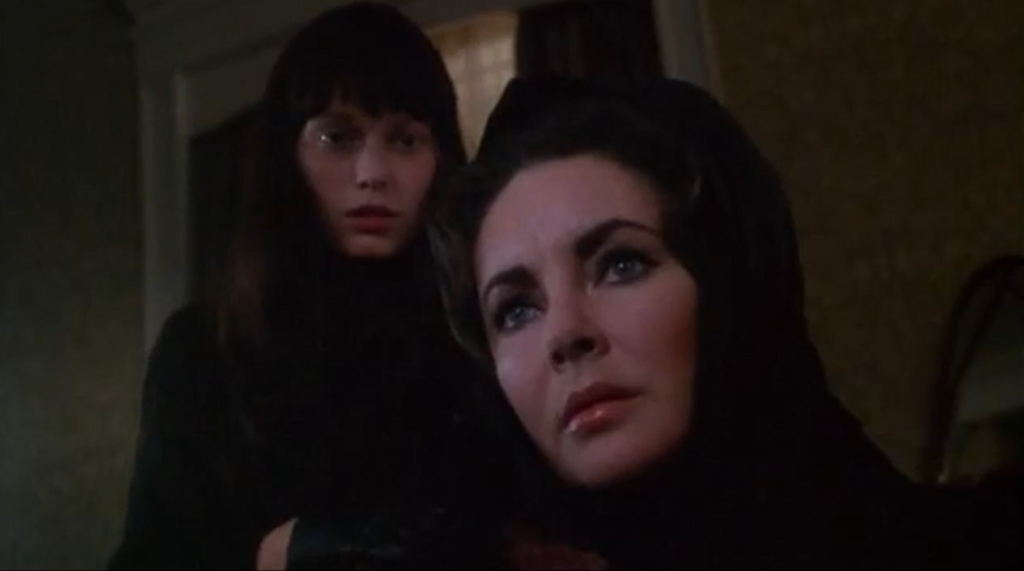
— is completely convincing as a 22-year-old with the mind of a child; but it’s Taylor who really cements the story: while her performance gets off to a bumpy start, we’re soon captivated by her increasingly nuanced portrayal as a self-sufficient prostitute who knows a good deal when she sees it, yet can’t help feeling genuine maternal concern for Cenci. Despite its flaws, Secret Ceremony offers enough provocative moments to make it worth checking out.
Redeeming Qualities and Moments:
- Mia Farrow as Cenci
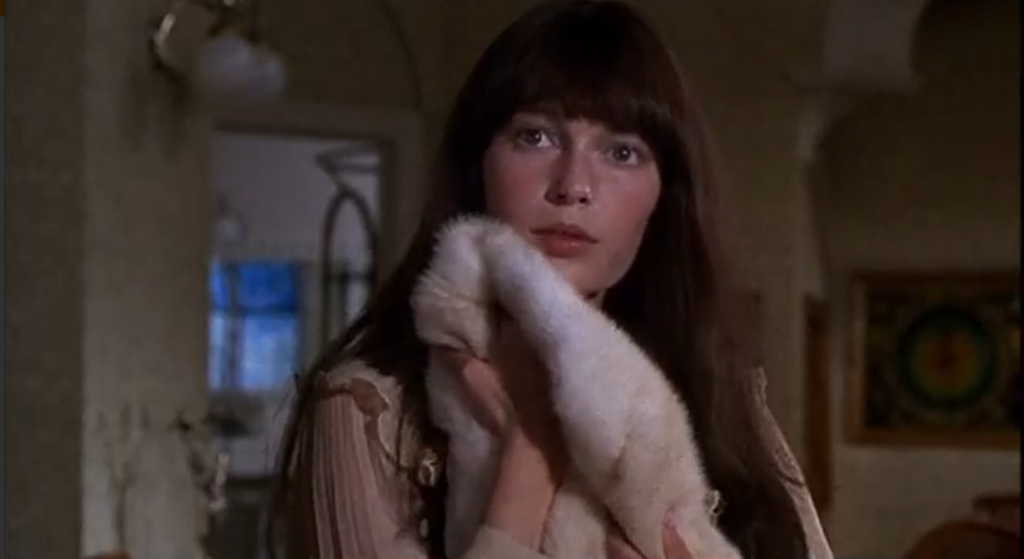
- Elizabeth Taylor as Leonora
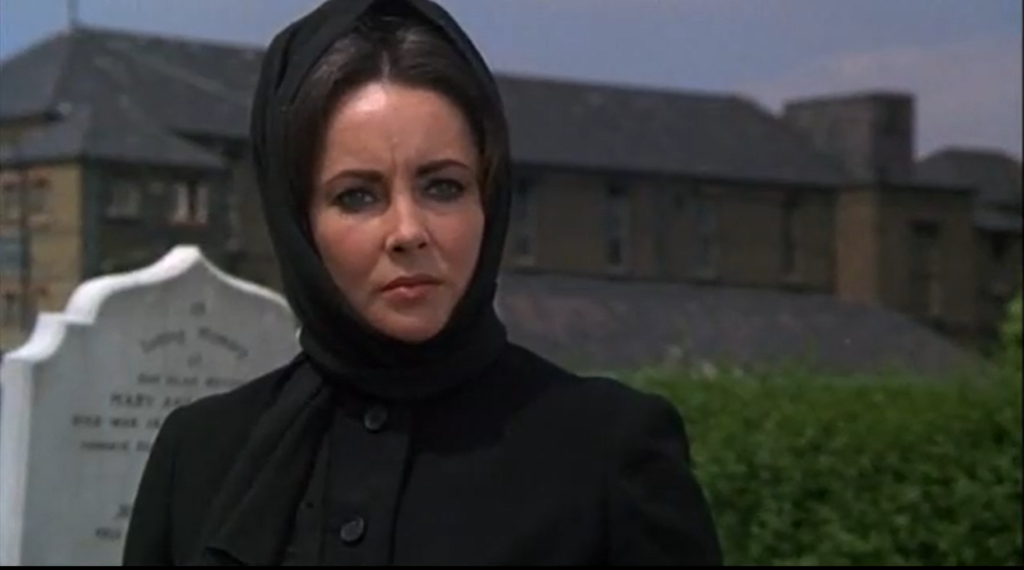
- Peggy Ashcroft and Pamela Brown as Cenci’s thieving aunts
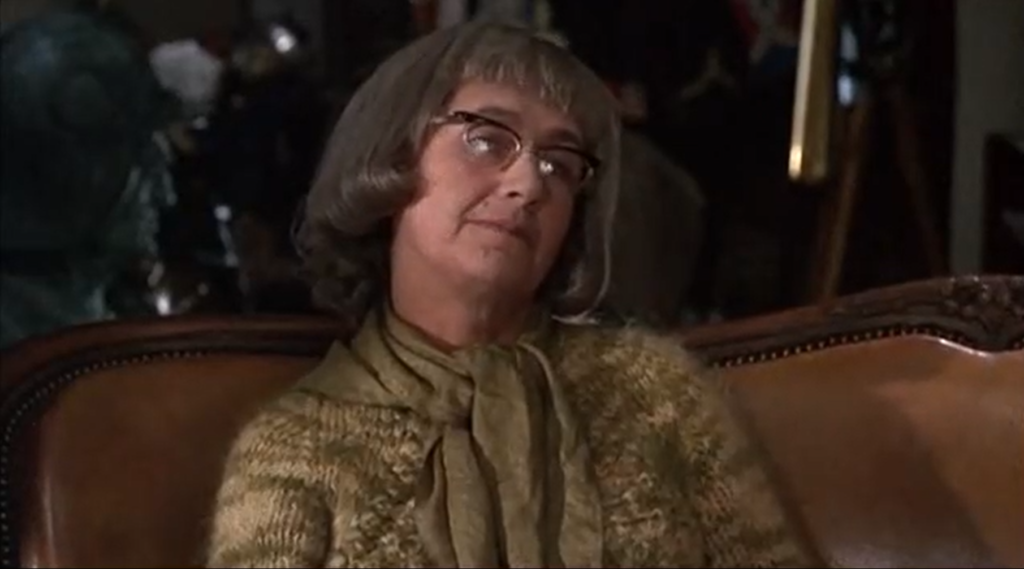
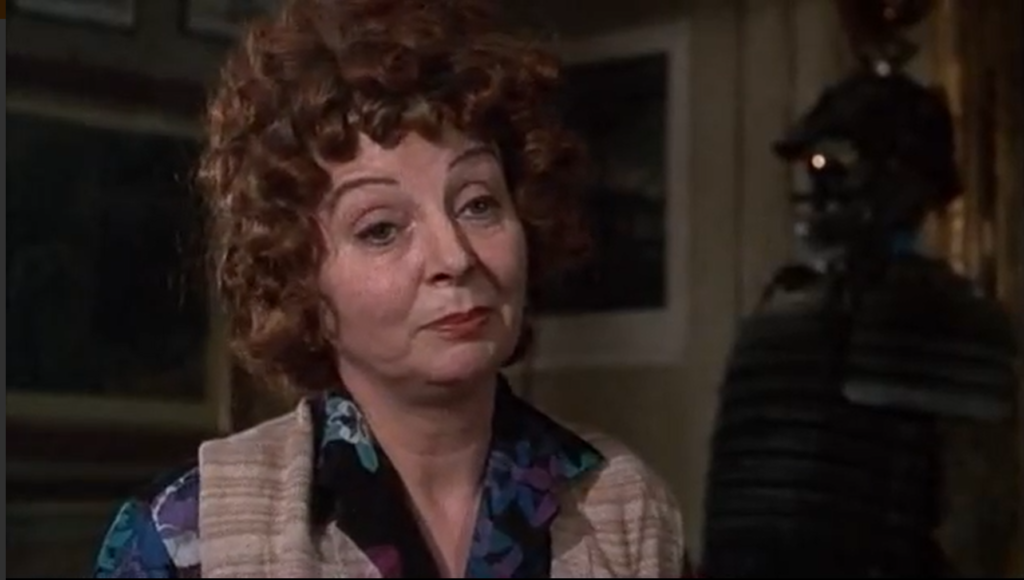
- Effective use of mirrors as a visual device
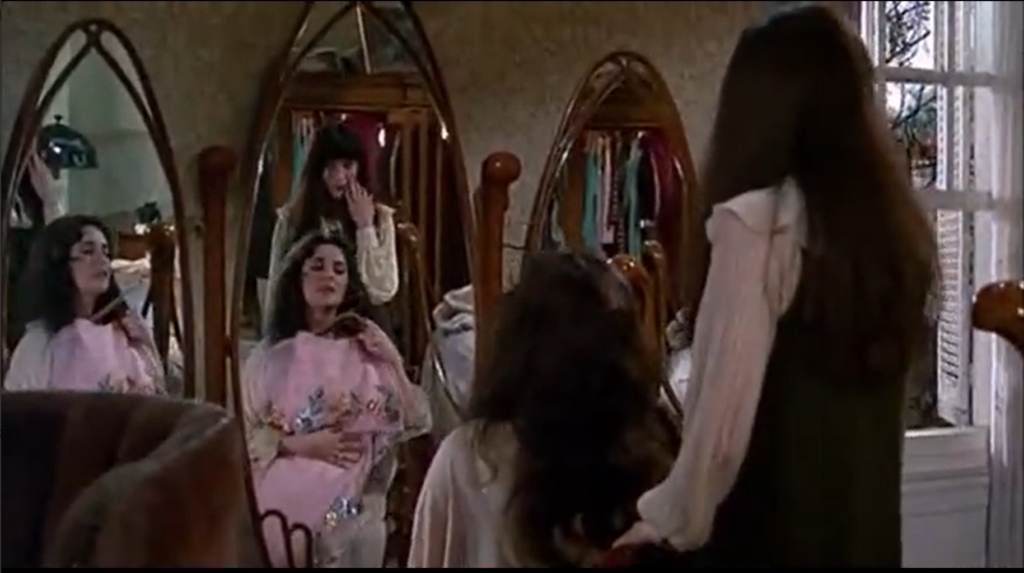
Must See?
Yes, simply for its status as an unusual cult favorite. Listed as a Cult Movie in the back of Peary’s book.
Categories
Links:
|
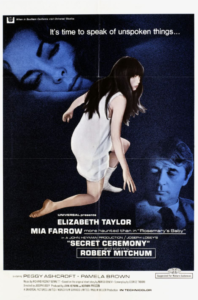






3 thoughts on “Secret Ceremony (1968)”
A once-must, at least; this is 100% Weird Cinema at its finest! “Bizarrely compelling”, indeed!
Our Liz wants nothing to do with nutcase Mia when the latter engages in mass-transit slithering to call Liz “Mummy”. Then Liz learns she’s landed in a tub-o’-buttah. Blink: Liz becomes “Mummy” and the two actresses are off!~on what is more-than-occasionally a riff on ‘Who’s Afraid of Virginia Woolf?’
Liz here returns to Losey-land right after appearing in the director’s ‘Boom’ (Good Lord…’Boom’!). By the time she made ‘SC’, she was five films away from ‘Virginia Woolf’…but Martha was not completely out of her system. Farrow, on the other hand, had just made ‘Rosemary’s Baby’; here she treats us to a generous leftover of Mrs. Woodhouse. (One also suspects she may have seen a screening of ‘Candy’; she appears to be sneaking in a Ewa Aulin ‘tribute’.) It’s true that Taylor “cements the story”; her performance here is the one to watch. Outside of what Polanski and Woody Allen were able to get out of her, Farrow has not been an actress of much range. It’s only in the last ten minutes of ‘SC’ that she does something not bordering on downright silly.
But then, this whole movie is downright silly. It’s not a great experience visually (it’s more like a filmed play), but it’s to Losey’s credit that he kept this mountain of malarkey coherent. Most of his films are largely unknown, a number don’t exactly make for easy viewing; they tend to feel like they’re on downs. ‘SC’ is no exception. But its psychosexual/identity crisis component is rich, to say the least (some even seems snipped), so you’re not likely to nod off.
Best scene: Liz visits the aunts!
Best line:
Liz: Thank you. I’ve never had a more – [BURP] – sumptuous breakfast.
Runner-up:
Mitchum: You look more like a cow than my late wife. Oh, no offense, I’m…very fond of cows. Moo!
There’s a suitably wacky finale – natch!
I actually disagree that the film isn’t a great experience visually, and don’t consider it to be like a filmed play at all; I found myself frequently noting Losey’s stylized framing, strategic use of mirrors, etc., and consider this to be one of the film’s driving forces.
I also disagree about Farrow — found her captivating from start to finish.
I’m in complete agreement, however, that the scene in which Taylor “visits the aunts” is undoubtedly the best in the film! Ashcroft and Brown (particularly Ashcroft — those bangs!) are reason enough to visit this movie…
I just meant that – things like framing, certain frame content, etc., notwithstanding – for me, the film has an overall static quality: emphasis on the same interiors, and such. And, unlike something like ‘Entertaining Mr. Sloane’ – which is a filmed play – there’s a lack of liveliness in the proceedings, which points up a feeling of lethargy.
Except, of course, in a scene like the terrific one with the aunts!
As for Farrow – yeah, everyone feels differently about different actors. For me, Farrow is most often like a certain…GP (if you catch my contemporary meaning)…except, refreshingly, in cases I’ve noted.